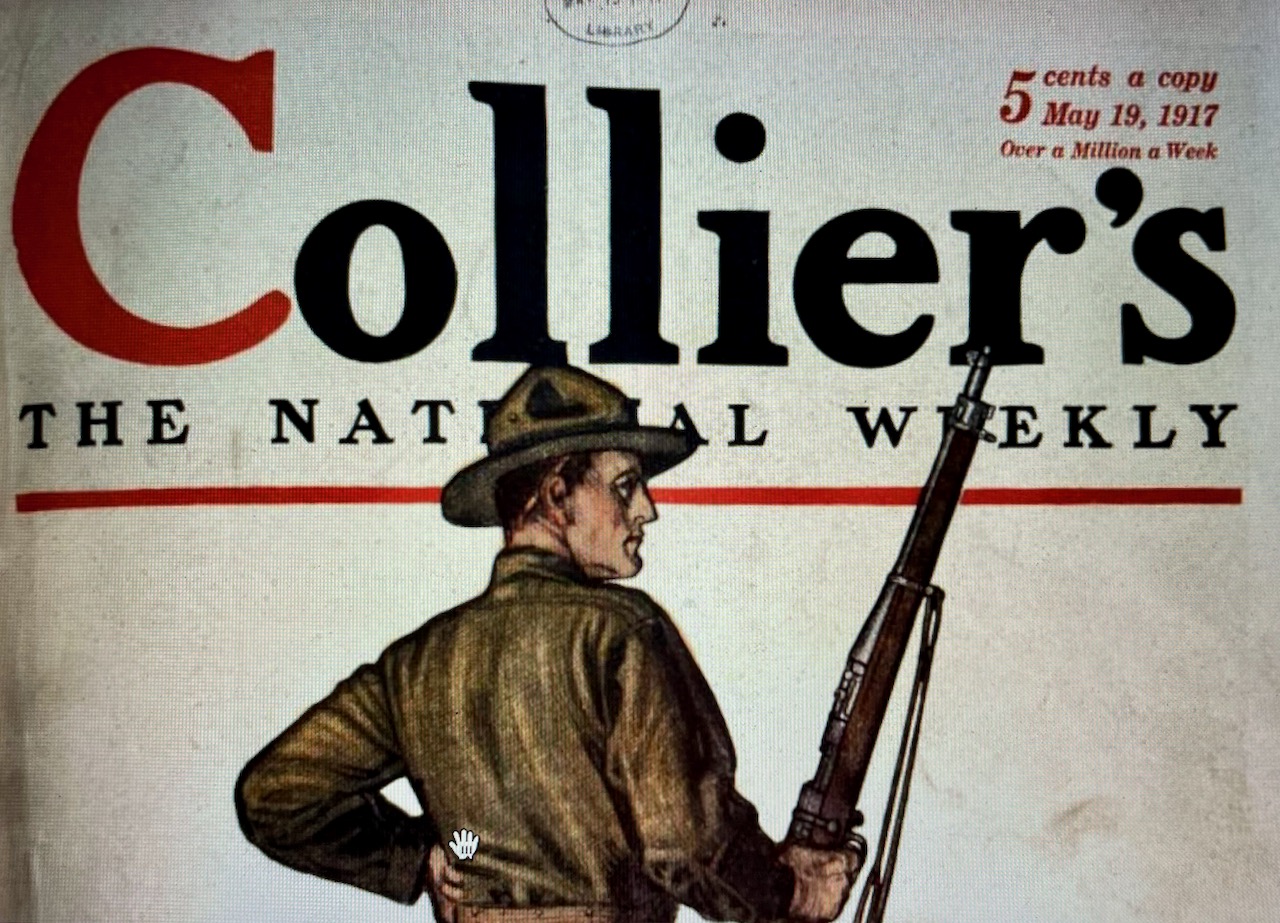A three-week road trip through parts of the Midwest and Canada (including Chatham, Ontario, where the subject of my next biography–J. D. Ross–grew up) has kept me from posting anything for a while. But I’m back in the Northwest now and I just came across a May 19, 1917, article published in the national magazine Collier’s Weekly, entitled “Portland the Spinster.”
Intrigued? Me too. I always enjoy seeing how outsiders view the Northwest. This particular piece was written by a Californian named Wilbur Hall, who seems to have done little beyond this kind of magazine writing.
Hall begins with a wide-angle view of the lush Willamette Valley and its nearby mountains before zeroing on the people of Portland who, he says, “speak aggrievedly and as children disappointed when the peaks are veiled with clouds.” Having established a condescending tone, he quickly moves on to his main point: that Portland is like a reclusive, persnickety and somewhat risable woman–in his parlance, a “spinster.”

Hall attributes the city’s spinster-ness to the continued, conservative control of the FFPs–the First Families of Portland, or, as he calls them again and again, “the Corbetts and the Failings and the Ladds and the Lewises and the Flanderses and the Hoyts and their kind.”
Waiting on the “approving nod of these families” he writes, are “questions of municipal harbor bonds, a mayor’s election, the Drama League, the repainting of the church, women’s smoking, the length of bathing costumes, and the absence of length in street skirts, prohibition, the location of the First National Bank, the conduct of our war against the I. W. W., pure-milk campaigns, the tango, the movie, the treatment to be accorded anarchists, strangers, holy men, fakers, new doctrines, new art, new thought, new life.”
According to Hall, the rest of Portland’s population “is built from two quite different classes, yet with many characteristics in common that would combine to give any community a flavor of provincialism.”
The first to arrive, he writes, were “powerful, slow, industrious, gentle, lovable people from the north of Europe–Swedes and Danes and Norwegians–drawn into this country of timber by the irresistible force of traditional vocation.”
The second were “families threatened by the maelstrom of the early days of the Rebellion–border-State folk without sympathy to attach them to the heroic flags of the South or conviction to carry them into the zealous ranks of the North. They were neither cowards nor shirkers, probably–just silent, unimaginative, unconcerned agriculturalists, for whom moving was cheaper and easier and safer than fighting or standing between those who fought.”

In sum, the city was composed of fusty overlords and slow, unimaginative sheep.
Yet in Hall’s time, Portland had a very different reputation in some circles. It was known as the birth place of the Oregon System, which put political power in the hands of the people. How did he account for that?
Yes, Portland did hold the reins of power in the state, he allowed, and it was difficult to “square the [city’s] tendency toward reaction with the fact of progressivism.” But he had an answer for it:
“It happened that they had in their midst able leaders, ahead of their times. It happened also that there was a group of strong and consistent radicals among them–men of unusual ability, of high standing in the community, and of pronouncedly revolutionary schools. My notion is that the hidebound conservatives who dominate Portland when they exert themselves were caught napping in those early days when the direct-legislation triplets–initiative, referendum, and recall–were brought forth for the first time. Woman suffrage, prohibition, protective and regulatory measures of State socialization, came in in a rush. Before the conservatives woke up, Oregon was committed to an out-and-out progressive program. And now no one, not even the conservatives themselves, would be willing to go back to the older system.”

In other words, Portland’s conservative FFPs were lazy and hoodwinked but simply said, “Oh, well” when they found themselves in a new system.
There is much to smile at in Hall’s depiction of a city he wants to dismiss as being unworthy of comparison to his own Los Angeles. But at least he comes close to getting Portland’s rain right:
“As nearly as I can get at it, Portland doesn’t have so much real rain–not in inches; it just seems to have. As I understand it, Portland’s rains are scattered more or less evenly through the year, sunshine and downpour being doled out in climactic layers. I was assured by Portlanders, not only that no one minds the rain, but that they don’t have a really wet rain.”


Leave a Reply